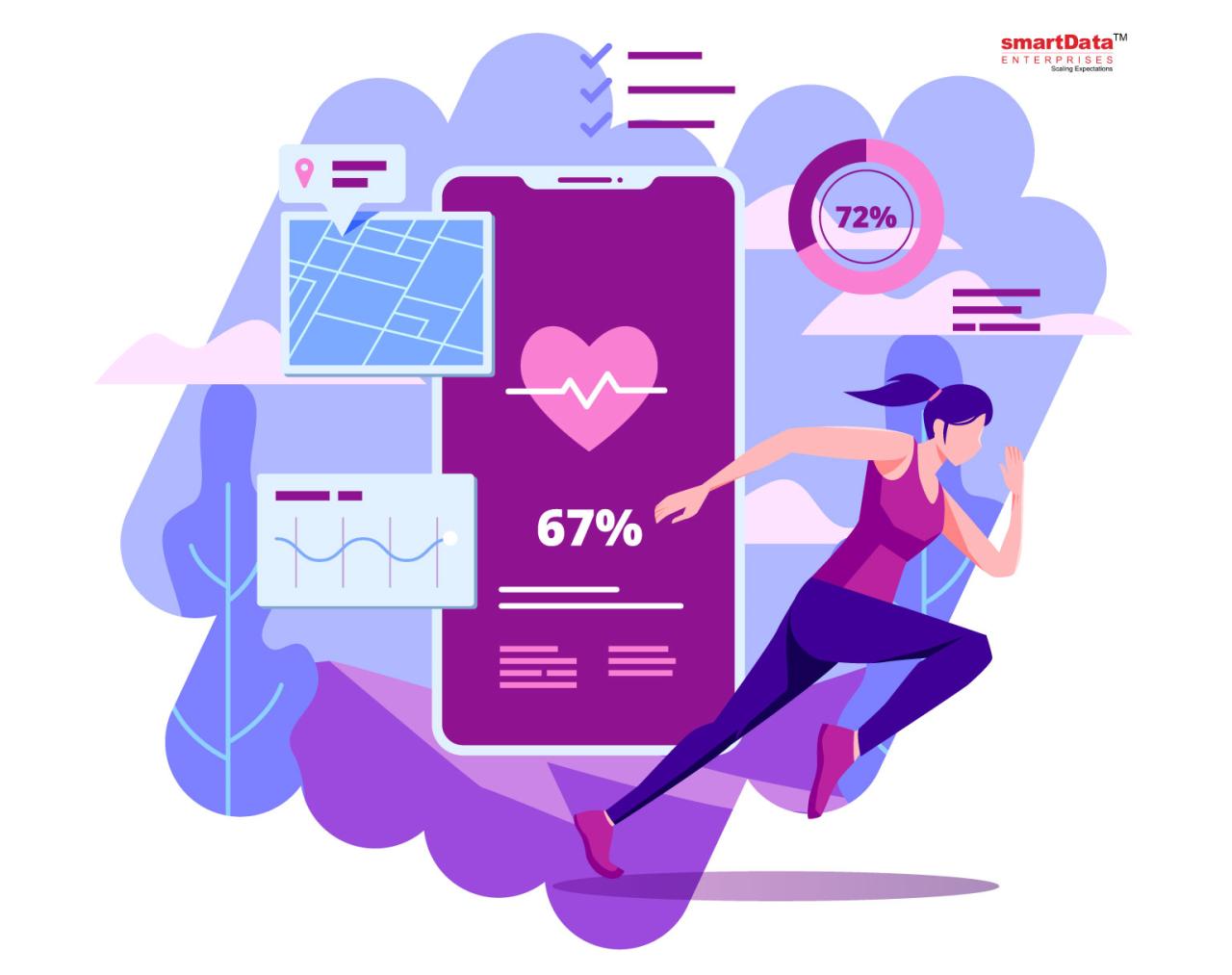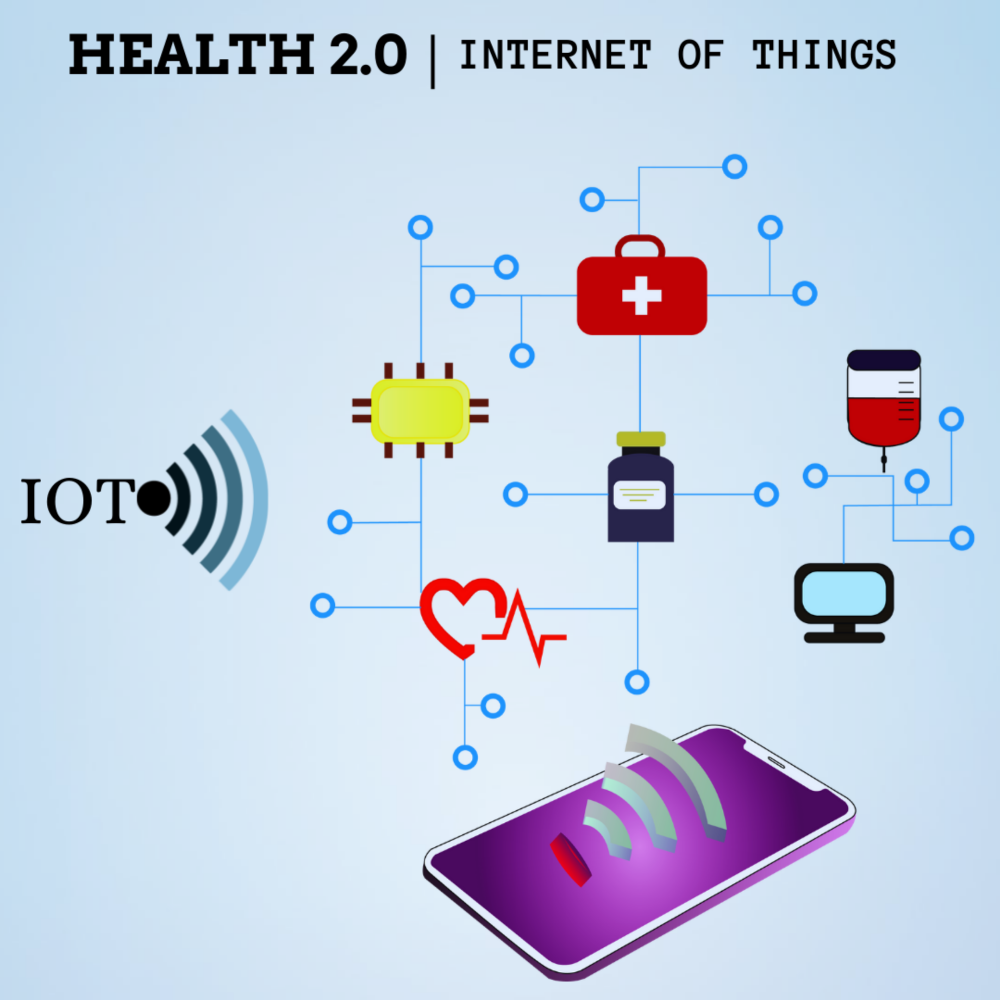Embark on a journey of integrating IoT with your healthy lifestyle, exploring the innovative ways technology can enhance your well-being and fitness goals. From smart devices to personalized nutrition monitoring, discover how IoT can revolutionize your approach to health.
Delve deeper into the realm of IoT and its seamless integration with healthy living practices, uncovering the endless possibilities for a more balanced and fulfilling lifestyle.
Understanding IoT in the context of a healthy lifestyle

IoT, or Internet of Things, refers to the network of physical devices embedded with sensors, software, and connectivity that enables them to collect and exchange data. When it comes to promoting a healthy lifestyle, IoT can play a crucial role in monitoring and managing various aspects of health and wellness.
Key IoT devices and technologies for daily health routines
- Smart wearable devices: Wearable fitness trackers and smartwatches can monitor physical activity, heart rate, sleep patterns, and more to help individuals stay active and maintain a healthy lifestyle.
- Smart scales and blood pressure monitors: These devices can track weight, body composition, and blood pressure levels, providing valuable data for individuals looking to manage their weight and cardiovascular health.
- Smart kitchen appliances: IoT-enabled kitchen gadgets can help users track their nutrition intake, plan healthy meals, and monitor food storage to support better dietary habits.
Benefits of integrating IoT with a healthy lifestyle
- Personalized health insights: IoT devices can collect real-time data and provide personalized recommendations based on individual health goals and preferences.
- Improved accountability and motivation: By tracking progress and setting achievable goals, individuals can stay motivated and accountable in their health journey with the help of IoT technology.
- Early detection of health issues: Continuous monitoring through IoT devices can help in early detection of potential health problems, allowing for timely intervention and prevention.
IoT devices for fitness and exercise tracking
IoT devices have revolutionized the way we track our fitness and exercise routines, providing real-time data and insights to help individuals stay motivated and achieve their goals. These devices come in various forms, such as smartwatches, fitness trackers, and smart scales, each offering unique features to monitor different aspects of physical activity.
Smartwatches
Smartwatches are versatile devices that not only track your daily steps and calories burned but also provide additional functionalities like heart rate monitoring, GPS tracking, and workout guidance. They can sync with your smartphone to give you comprehensive insights into your exercise routines and overall health.
- Apple Watch: Known for its seamless integration with iOS devices, the Apple Watch offers a wide range of fitness tracking features, including activity rings, workout detection, and personalized coaching.
- Fitbit Versa: Fitbit's smartwatches are popular for their accurate activity tracking, sleep monitoring, and guided breathing exercises to help users manage stress levels and improve overall well-being.
Fitness Trackers
Fitness trackers are compact wearable devices designed to monitor your physical activity throughout the day, including steps taken, distance traveled, and calories burned. They are an excellent option for individuals looking for a simple and discreet way to track their fitness progress.
- Xiaomi Mi Band: This budget-friendly fitness tracker offers basic activity tracking features like step counting, sleep monitoring, and sedentary reminders, making it a great entry-level option for beginners.
- Garmin Vivosmart: Garmin's fitness trackers are known for their advanced performance metrics, such as VO2 max estimation, stress tracking, and hydration reminders, making them ideal for serious athletes and fitness enthusiasts.
Smart Scales
Smart scales are IoT devices that go beyond traditional weight measurement by providing additional insights into body composition, such as muscle mass, body fat percentage, and water weight. They can sync data to fitness apps for a comprehensive view of your health and fitness progress.
- Withings Body+: This smart scale offers accurate weight and body composition measurements, along with a pregnancy mode and nutrition tracking features to help users maintain a healthy lifestyle.
- FitTrack Dara: FitTrack's smart scale uses bioelectrical impedance analysis to provide detailed body composition data for up to eight users, making it a great choice for families or shared households.
IoT-enabled nutrition and diet management

Nutrition plays a crucial role in maintaining a healthy lifestyle, and IoT devices have revolutionized the way we monitor our dietary habits and make informed food choices.
IoT Devices for Monitoring Nutrition Intake
IoT-enabled devices such as smart scales, food scanners, and smart kitchen appliances can help individuals track their calorie intake, macronutrients, and micronutrients more efficiently. These devices provide real-time data on the nutritional content of food items, helping users make better choices when planning their meals.
Promoting Healthy Eating Behaviors with IoT
IoT technology can encourage healthy eating behaviors by sending reminders and notifications to users about their dietary goals, hydration levels, and meal timings. By analyzing eating patterns and preferences, IoT devices can offer personalized recommendations to improve overall nutrition and wellness.
Streamlining Meal Planning with IoT
With the help of IoT applications and platforms, individuals can streamline meal planning by creating personalized meal plans based on their nutritional needs and dietary restrictions. These platforms can suggest recipes, generate shopping lists, and even track food expiration dates to minimize food waste and ensure a balanced diet.
Smart home integration for a healthy lifestyle

Creating a smart home environment that supports healthy living is now easier with the integration of IoT devices. These devices not only provide convenience but also contribute to improving overall well-being by helping individuals maintain healthy habits.
Smart Thermostats for Better Sleep Quality
Smart thermostats are one example of IoT devices that can enhance health within a smart home. These devices can regulate the temperature in your bedroom to create an optimal sleep environment. By maintaining the ideal temperature for sleep, smart thermostats can help improve sleep quality, ensuring you wake up feeling refreshed and ready to tackle the day.
Smart Lighting for Circadian Rhythm Regulation
Another important aspect of health is maintaining a proper sleep-wake cycle. Smart lighting systems can be programmed to mimic natural light patterns, helping to regulate your circadian rhythm. By simulating sunrise and sunset, these devices can promote better sleep and wake cycles, ultimately leading to improved overall health.
Smart Kitchen Appliances for Healthy Cooking
In a smart home, IoT-enabled kitchen appliances can also play a role in promoting healthy living. Smart devices such as air fryers, pressure cookers, and smart ovens can help individuals prepare nutritious meals more efficiently. These appliances often come with built-in cooking programs and recipes tailored to specific dietary needs, making it easier to maintain a healthy diet.
Final Thoughts
In conclusion, the fusion of IoT with your healthy lifestyle opens up a realm of opportunities to optimize your well-being and elevate your quality of life. By embracing these technological advancements, you pave the way for a healthier and more vibrant future.
User Queries
How can IoT devices promote a healthy lifestyle?
IoT devices can track fitness activities, monitor nutrition intake, and create a smart home environment conducive to healthy living.
What are some examples of IoT devices for fitness tracking?
Popular examples include smartwatches, fitness trackers, and smart scales that help individuals monitor exercise routines and progress.
How does IoT aid in managing dietary habits?
IoT applications assist in monitoring nutrition intake, promoting healthy eating behaviors, and streamlining meal planning for a balanced diet.







